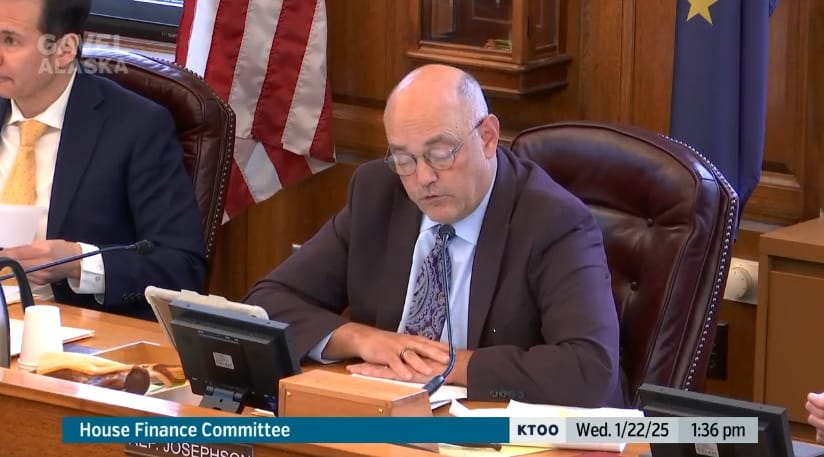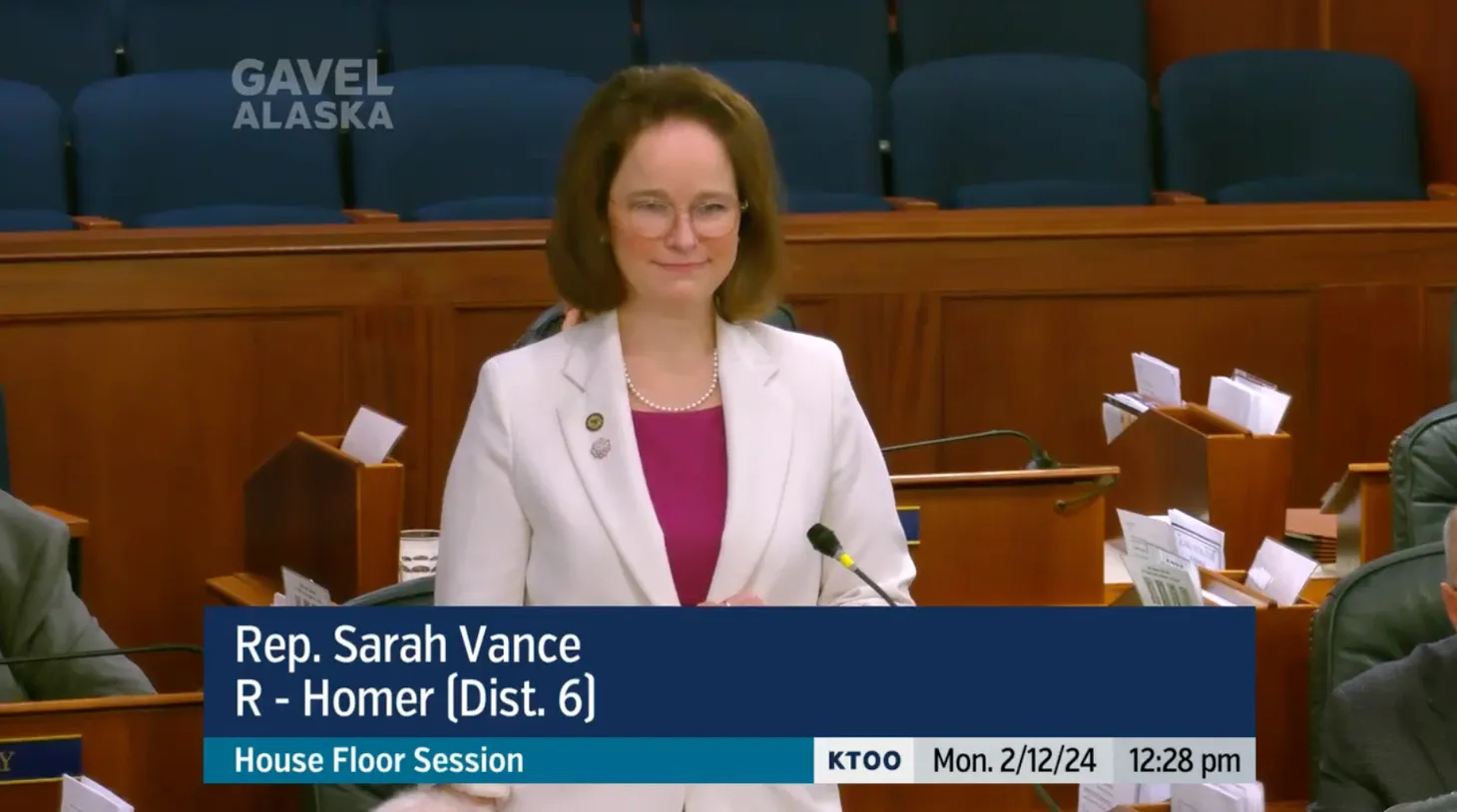Day 2: 'An extraordinary burden.' Dunleavy targets mail-in ballots
Dunleavy's election bill is a half-step forward and about five back.

Good afternoon, Alaska! It's Day 2 of the legislative session.
In this edition: Things in the Legislature are still getting up to speed with bill introductions and a few overview meetings about oil and gas issues. What grabbed my attention today is one of the bills from a trio introduced by Gov. Mike Dunleavy today that seeks to implement election reforms, with some being halfway decent ideas and others being a straight-up attack on voting in Alaska, particularly small communities and those who rely on by-mail voting. At least it seems like legislators are looking at addressing the real problems with how our state conducts elections. Also, some tempered expectations about Trump's "unleashing Alaska's extraordinary resource potential" with the reality of big oil and gas projects.
Current mood: 😬
Correction: Gah, Senate President Gary Stevens is from Kodiak, not another neighboring community that also starts with a K.
'An extraordinary burden.' Dunleavy targets mail-in ballots

The roughly two-week timeline for determining the outcome of razor-thin races is nothing new in Alaska elections, but several close, high-profile races that went down to the wire in recent years are fueling calls for the state to speed up the process. Members of the bipartisan Senate Majority laid out priorities for faster election results on Tuesday, though exactly how they plan to achieve this wasn’t immediately apparent.
Today, however, Republican Gov. Mike Dunleavy showed us his proposal for what that might look like with HB 63: a shorter window for people to vote early and a much shorter window for people to vote by mail—which, coincidentally, are also generally regarded as less conservative than election-day voting.
The legislation would end early voting five days before the election. It would also require by-mail ballots to arrive by election day rather than the 10 days after the election allowed under current law for most by-mail ballots, meaning ballots would likely need to be mailed a week or more before the election. Still lacking a curing process, voters would be in the dark about ballots and unable to fix errors. We'd also get a full repeal of the automatic voter registration passed by voters in 2016.
In return for narrowing the window on voting methods, the governor’s bill would propose providing postage on mail-in ballots and letting communities with fewer than 750 residents conduct state elections via mail (though precisely how this would work and the kinds of notices to communities isn't clear, the law looks like it'd leave it up mainly to the discretion of the director). They'd also authorize the Division of Elections to start processing ballots earlier.
While postage and earlier processing are welcome changes, Michelle Sparck, the director of Get Out the Native Vote, panned the underlying proposal. She has long advocated for voters in rural communities, who have faced unopened polling places, mailing errors and a much higher rejection rate for by-mail ballots than other communities. She said the changes would only lead to more problems for rural voters, particularly with disruptions to rural mail service and frequent changes in election workers.
“Voting-by-mail is still very tricky for rural precincts under a system fraught with personnel and/or weather challenges. Even up to Election Day, we were getting inquiries from former absentee voting officials as to where their ballots were for their community,” she said. “It’s an extraordinary burden to place on rural voters when various forms of systemic failures add up to non-starters, delayed early voting, other access issues, as well as untoward rejection rates.”
Why it matters
As I've covered before in this space, voters in rural Alaska face barriers to voting that people in urban communities simply don't. There are long-running translation issues, mail-in ballots are rejected at a far higher rate, and, perhaps most galling, the Alaska Division of Elections has a knack for simply failing to open polling places on election day, leaving communities scrambling to ensure their votes are counted with mixed success.
And much of this, it seems, is by design.
The Alaska Senate approved a measure at the tail-end of the 2024 session to address one of the most glaring problems for rural voters: the witness signature requirement on mail-in ballots. The lack of a witness signature is frequently the leading cause of discarded ballots, which would be one thing if they were an effective tool to catch fraud (and if there was a ballot-curing process), but it's not. The state doesn't have a process to check the signatures against anything, meaning they have never been used to identify fraud. In effect, all they do is lead to a disproportionate amount of votes from rural Alaska being discarded (and when the rule was put on hold during the pandemic, rejection rates evened out).
House Republicans narrowly killed the measure, with now-former Kotzebue Rep. Thomas Baker splitting from fellow rural legislators to oppose it. Later, now-former House Speaker Cathy Tilton admitted they did so because they were worried that counting more rural voters—who are also mainly Alaska Native—might help U.S. Democratic Rep. Mary Peltola, the first Alaska Native person elected to Congress, win reelection.
According to a report by the Anchorage Daily News, about 500 ballots were disqualified in the general election for not having a witness signature, far smaller than Peltola's roughly 8,000-vote margin of defeat. Coincidentally, Baker lost his election to Democratic Rep. Robyn Niayuq Burke of Utqiagvik. She was one of three Alaska Native women sworn in on Tuesday, the highest number of Alaska Native women to serve in the chamber.
At Tuesday's media availability, Senate Rules Committee Chair Sen. Bill Wielechowski called the witness signature provision "meaningless" and said both the House and Senate majorities would work to address it this session.
"We asked (the Division of Elections) during a State Affairs Committee hearing last year whether if somebody signed Mickey Mouse as a witness signature, would they throw out the absentee ballot, and they testified no, they wouldn't," he said. "So, it's this meaningless requirement that is on the books that is unfortunately causing votes to be thrown out."
Tempering Trump expectations

The House Finance Committee held the first legislative hearing of the session, an overview of the Department of Natural Resources production forecast. The powerful committee has gone through a pretty major shake-up after control of the chamber flipped from Republican hands. The co-chairs are now Reps. Neal Foster (D-Nome), Calvin Schrage (I-Anchorage) and Andy Josephson (D-Anchorage) with freshmen Reps. Nellie Unangik Jimmie (D-Bethel) and Jeremy Bynum (R-Ketchikan). The Republican minority seems to be leaning to the far right, given their decision to put Rep. Jamie Allard (R-Eagle River) on the committee.
The hearing was technical, with questions about the underlying thinking that goes into crafting the state's oil production forecast and how they weigh existing and prospective projects. There was an interesting exchange when it came to Trump's "Unleashing Alaska’s Extraordinary Resource Potential" executive order—which U.S. Sen. Dan Sullivan called a "grand slam home run," according to the Alaska Beacon, before hilariously ducking a question on the J6 pardons with an "I need to read the order first" claim.
Far-right Fairbanks Rep. Frank Tomaszewski wanted to know when the state can start factoring Trump into the forecasts (which, coincidentally, is essentially Gov. Dunleavy's plan for balancing the budget into the future).
The answer was, basically, maybe eventually, with many caveats about the larger challenges of developing oil and gas projects in Alaska and the reality that we're not actually 100% sure there is as much oil and gas in the ground as we think. There's a risk to developing oil and gas in Alaska beyond a presidential election every four years, and the first Trump administration's shoddy, rushed work ahead of the 2021 lease sale only worsened the risk.
Rep. Josephson also pointed to the approval of the Willow project under the Biden administration, noting that permitting and developing such projects takes much longer than a single four-year term.
Follow the short thread: A quick thread on the House Finance Committee meeting
Stay tuned.
The Alaska Memo Newsletter
Join the newsletter to receive the latest updates in your inbox.




